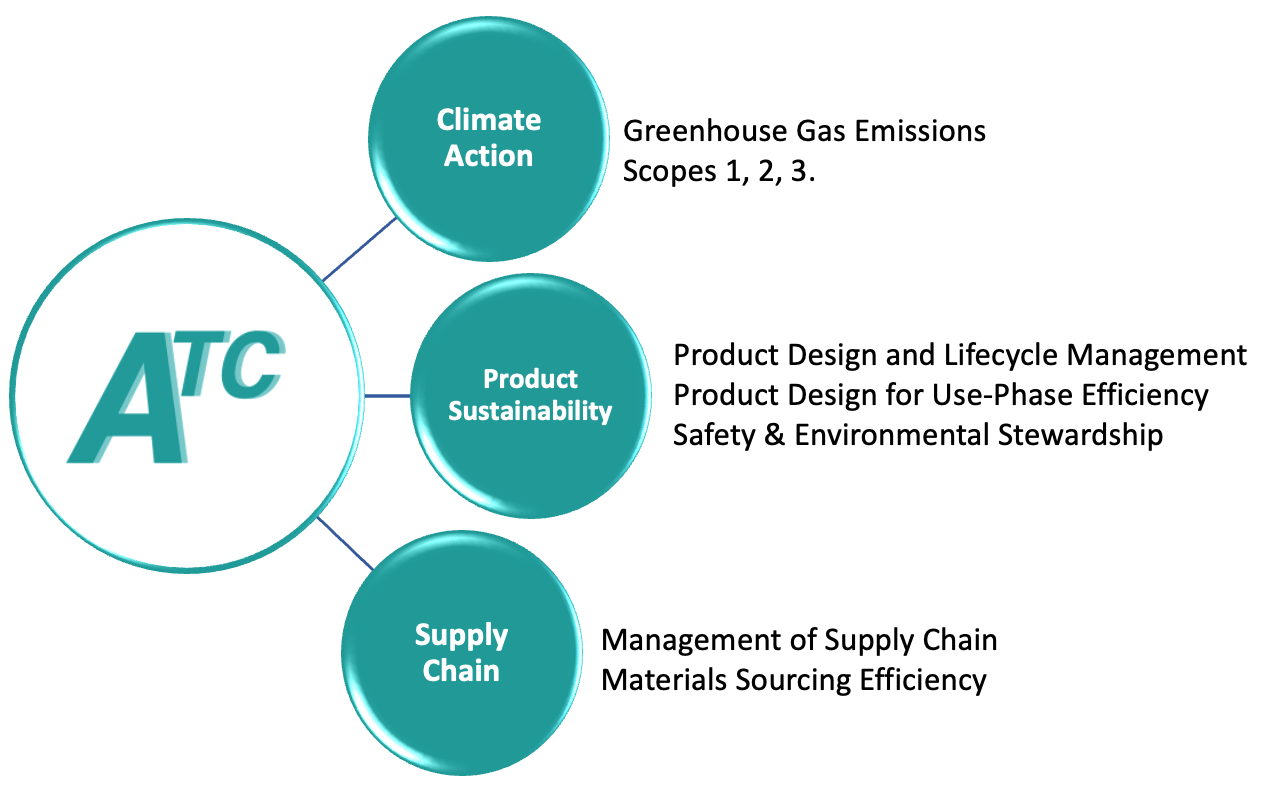Sustainability
Our current efforts with regards to sustainability

Who we are
ATC members produce innovative lubricant and fuel additives that are essential in delivering a sustainable future for EU's societal and economic wellbeing. The ATC Sustainability Sub Committee (SSC) is attended by most of Europe's leading petroleum additive manufacturers, who come together to discuss topics of a technical and statutory nature which are of concern to our industry.
How do we define sustainability?
Our definition of sustainability is in alignment with other associations across the industry, including the Union of the European Lubricants Industry (UEIL):
Lubricants and fuels additives created by innovative businesses enabling the use of safe, resource saving technologies and processes which progressively reduce the burden on the planet and local environments, and benefit people and society
Our Terms of Reference
Member companies have come together and agreed upon the following terms of reference, highlighting the specific deliverables and actions required. The SSC will:
-
1
Provide a forum allowing sharing of information and development of common tools and methodologies related to sustainability, including metrics and reporting
-
2
Provide a communication channel for all industry stakeholders, including regulators, on matters of sustainability
-
3
Collaborate with actors in the value chain regarding what sustainability means to ATC members, in regards to:
-
Circularity
-
Life Cycle Assessments
-
Product Environmental Footprint Category Rules
-
Our Objectives
Working together as the ATC SSC, we shall aim to:
-
1
Develop a harmonised approach for calculating product footprint (and product handprint in the longer-term) by:
-
Gathering information on tools and methodologies available and appropriate to additives in fuels and lubricants
-
Recommending to members the optimum sustainability metrics and methodologies
-
Sharing with other industry groups and other stakeholders
-
-
2
Maintain communications with appropriate organisations to encourage alignment / harmonisation
-
e.g. UEIL, ATIEL and VSI
-
-
3
Continue to identify opportunities for collaboration with the petroleum and automotive industries
Our Material Areas
The following areas are considered to be of critical importance to our group. These are areas we feel we can impact and influence most through our activities.
